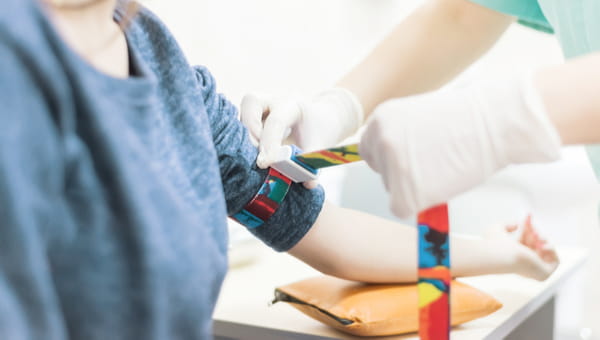Unless you have risk factors and have already been screened for gestational diabetes, you will probably undergo glucose testing sometime between weeks 24 and 28. Here’s what to expect.
Why do I need to be tested?
About 7% of pregnant mothers develop gestational diabetes, which increases the risk of complications during pregnancy, labor and delivery. The glucose testing measures your body’s response to glucose (blood sugar), and it is used as a screening tool for gestational diabetes.
How will it work?
Glucose challenge screening
The first step is usually a one-hour glucose challenge screening, which is a pretty quick-and-easy test. You’ll have to drink a super-sugary drink, and then have blood drawn one hour later to see how your body reacted to the sugar overload. If the results show that you aren’t processing the sugar effectively, then you will likely be asked to schedule a three-hour glucose tolerance test.
Glucose tolerance test
Glucose tolerance tests are usually scheduled first thing in the morning, as you won’t be allowed to eat or drink anything for eight hours beforehand. To start, you’ll have a blood sample taken to determine your fasting blood sugar level. Next, you’ll drink a larger amount of the super-sugary drink, and then wait around your doctor’s office. You’ll have blood drawn and tested every hour for three hours.
What if I “fail” the test?
If your results come back high on one of the three blood draws, you will probably be asked to repeat the test a few weeks later. If two or more of your results are high, then you will be diagnosed with gestational diabetes. Your doctor will talk to you about how to manage your blood sugar level during the remainder of your pregnancy.




